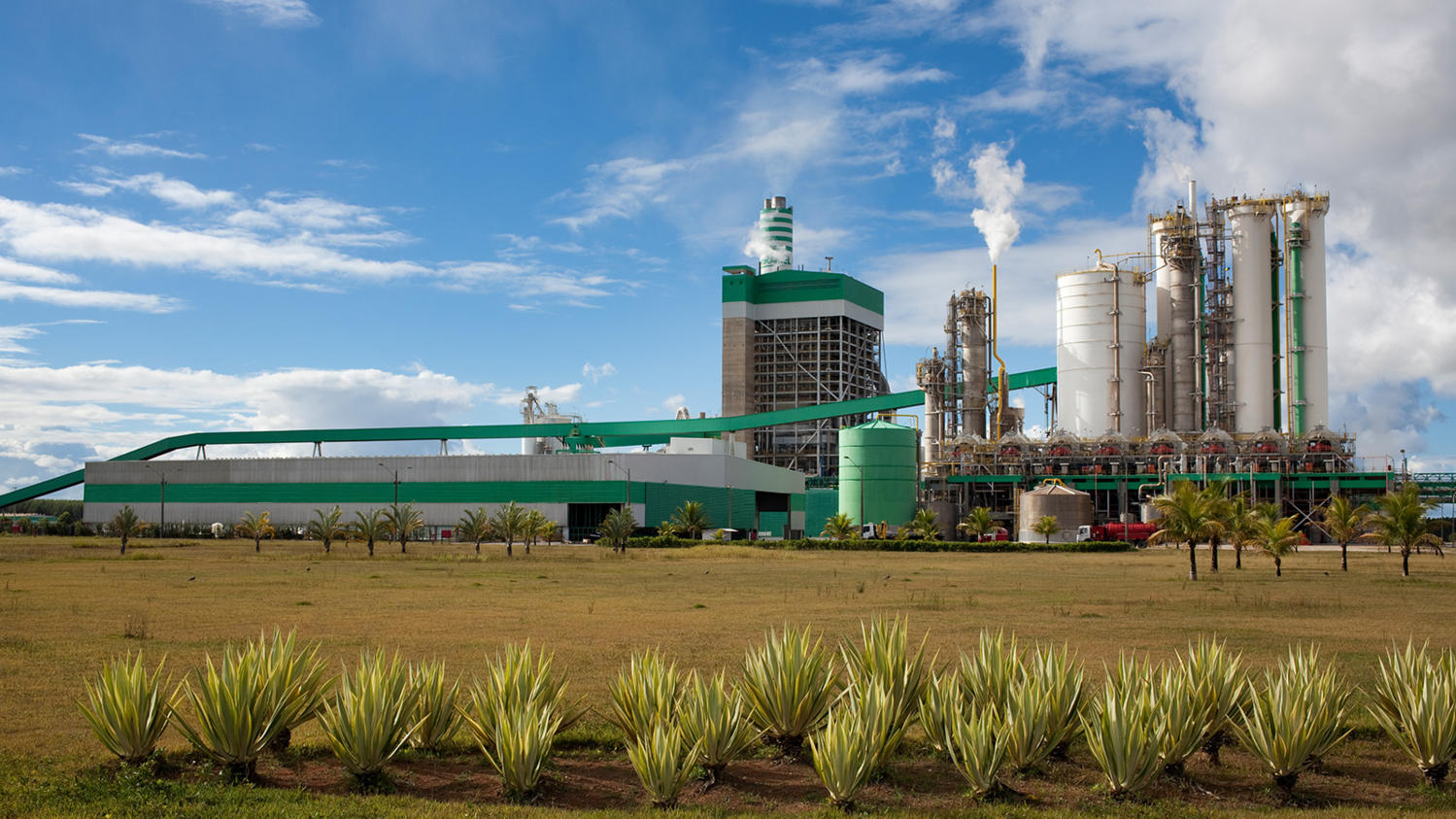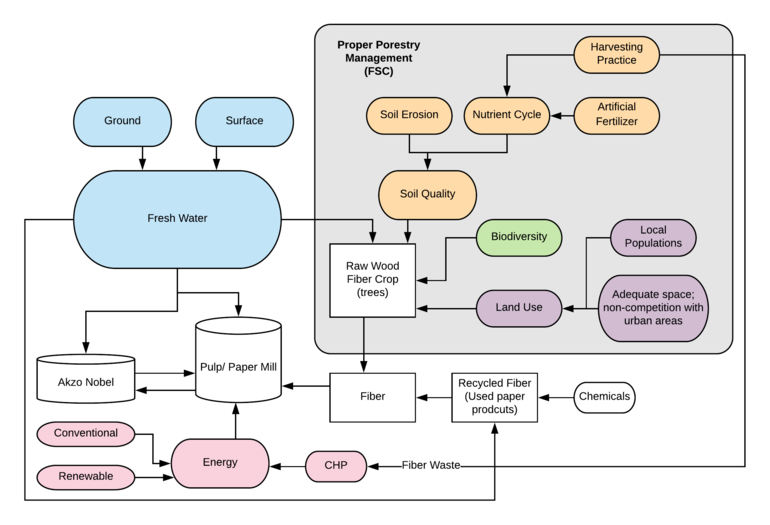AkzoNobel Pulp & Performance Chemicals: Opportunities and risks in the bleaching chemicals value chain

AkzoNobel Specialty Chemicals is a major producer of specialty chemicals, used in everyday essentials. Pulp & Performance Chemicals (PPC) is one business unit in AkzoNobel Specialty Chemicals and is a leading supplier to the pulp industry delivering chemicals and sustainable customized solutions for bleaching pulp. PPC also supplies performance chemicals to a large range of application e.g. purification of insulin, surface polishing, ingredients for paints and coatings amongst others.
AkzoNobel had previous knowledge of natural and social capital assessments as it had earlier assessed its own production and upstream supply.
Why a natural capital assessment?
The objective of the assessment was for PPC to assess how sensitive its operations are to changes in natural capital supply, such as fresh water, fiber, climate control etc., and to identify future risks and opportunities linked to this supply for the bleaching chemicals business. The intention was also to assess how the results from such an exercise could inform future investments decisions.
What was the Protocol or the Sector Guide used for?
The forest product sector guide was used for the qualitative review and mapping out the major dependencies and impacts drivers.
From these, two dependencies (fresh water and fiber) and two impact drivers (emissions to air and emissions to water) were selected for monetization. For this, the guide was used for information on valuation methods amongst other.
How did you conduct your assessment?
The assessment was carried out over a period of 3 months.
A qualitative review of major dependencies and impacts was conducted using the guide combined with interviews, literature on the forestry industry, documentation from certification schemes, etc.
The measurement was performed by collecting data from internal reporting system, annual reports and personal interviews. Data gaps, such as production of raw materials for the bleaching chemicals were filled with generic industry data from global/ international databases.
The valuation/monetarization was conducted by identifying, assessing and applying publicly available scientific methodologies for monetarization. To be able to capture both global and regional/local impacts two publicly available monetarization methodologies were used the Environmental Priority Strategies and the Ecolab Water Risk Monetizer. In addition to these a couple of methods published in scientific articles were also used for assessing local/regional impact of the emissions to air and water. Finding such methods that were transparent enough to be able to interpret the results was challenging.
What were the outcomes of the assessment?
From the assessment PPC learnt more about the hotspots along the value chain of their products, as well as their magnitude. From this PPC were able to identify risks and opportunities linked to these hotspots. By also including their downstream value chain (pulp mill operations), in addition to its own operations and supply chain (e.g. chemical manufacturing) PPC were able to identify risk and opportunity hotspots along the full value chain.
One learning from the assessment was that fresh water usage and air emissions contributing to climate change along the value chain are two hotspots which are important to manage carefully.
Within our scope, we found the negative impact on natural capital (such as negative impact water usage, GHG emissions, and non-GHG air pollutants) to be relatively minor in comparison to the large value generated for society from these operations (e.g. through direct sales and profit, tax contributions, employment, wages, infrastructure, etc.).
Next steps
AkzoNobel Pulp & Performance Chemicals made use of the Scoping, and Measure and Value stages of the Protocol for this assessment and is now working on the Apply stage to help with implementing the learnings/outcomes.
AkzoNobel considers the use of this Protocol important to inform business decisions, using conservative, publicly available methodologies and hopes to see more consistency introduced into natural capital valuation, as the use of the Protocol becomes more widespread. AkzoNobel seeks simple, specific and streamlined tools and calculation methods, believed to be critical in ensuring uptake of natural capital assessments and making them manageable for companies.


